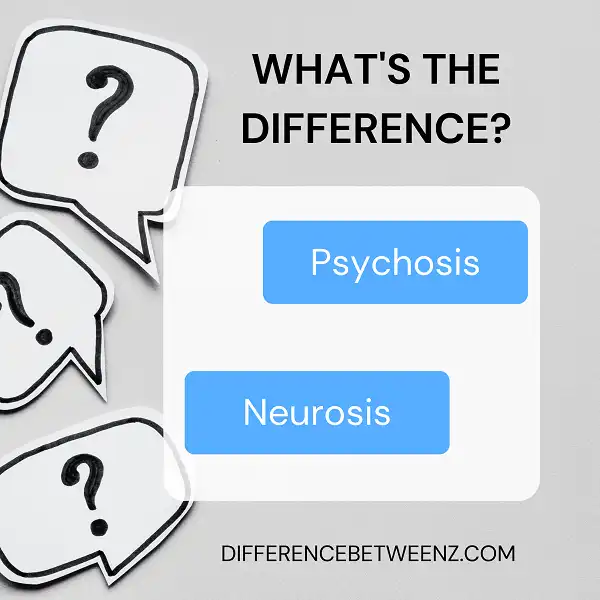It is important to understand the difference between psychosis and neurosis in order to get the right type of help for yourself or a loved one. While both conditions involve mental health issues, they are actually quite different. Psychosis is characterized by hallucinations or delusions, while neurosis involves anxiety and stress. If you are experiencing symptoms of either condition, it is crucial to seek professional help.
What is Psychosis?
- Psychosis is a mental disorder characterized by a break with reality. People who are psychotic may have trouble distinguishing between what is real and what is not. They may also have hallucinations or delusions.
- Psychosis can be a symptom of several different mental disorders, including schizophrenia, bipolar disorder, and depression. Psychosis can also be caused by substance abuse, physical illness, or brain injury.
- Treatment for psychosis typically includes medication and therapy. In some cases, hospitalization may be necessary. With treatment, people with psychosis can often manage their symptoms and live relatively normal lives.
What is Neurosis?
- Neurosis is a mental disorder that affects a person’s ability to cope with anxiety or stress. It can cause a range of symptoms, including irritability, mood swings, and difficulty concentrating.
- Neurosis is different from psychosis, which is a more severe mental disorder that can cause delusions and hallucinations. While there is no cure for neurosis, treatments such as psychotherapy and medication can help people manage their symptoms.
- Neurosis is relatively common, and it is estimated that up to one in four people will experience the condition at some point in their lives.
Difference between Psychosis and Neurosis
Psychosis and Neurosis are two terms that are often used interchangeably, but there are some important distinctions between the two.
- Psychosis is a mental disorder characterized by delusions and hallucinations. In contrast, neurosis is a less severe form of mental illness that is characterized by anxiety and obsessive-compulsive behaviors.
- While both psychosis and neurosis can be debilitating, psychosis is generally more serious and requires more intense treatment.
- Psychotic patients often require hospitalization and medication, while patients with neurosis may be able to manage their symptoms with therapy and self-care.
Because of the differences between these two disorders, it is important to seek professional help if you or someone you know is experiencing symptoms of either psychosis or neurosis.
Conclusion
The line between psychosis and neurosis can be blurry, but there are some key differences. Psychosis is a more severe condition that results in a loss of contact with reality, while neurosis refers to conditions such as anxiety or depression that cause emotional distress. If you’re not sure which category your loved one falls into, it’s best to consult with a professional. Thanks for reading!


